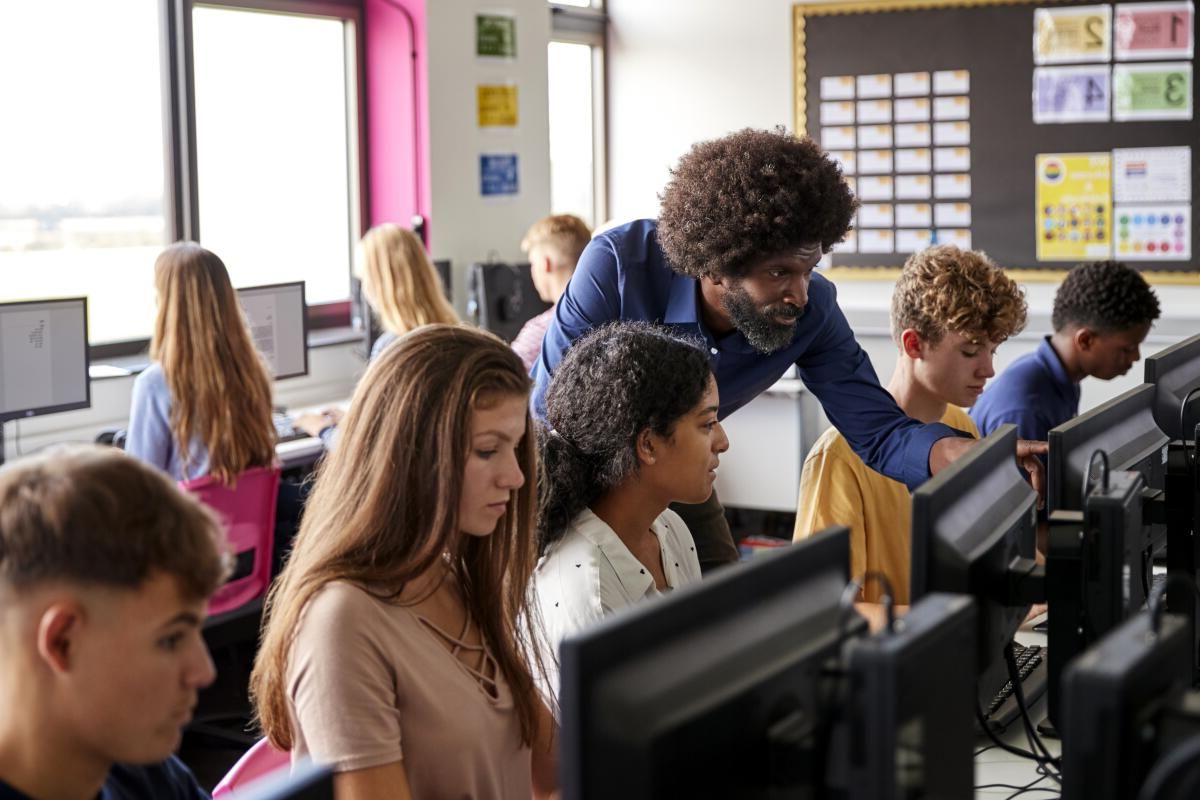California Legal Settlement: You may think that the legal settlements and the impact of COVID on minority students are two separate worlds, but in California, they have collided with a profound force. The consequences of this collision are far-reaching, and they have left many marginalized students struggling to keep up. But don’t worry, this isn’t just a bleak tale of despair. In the midst of these challenges, there is a glimmer of hope, a commitment from California to address the learning loss suffered by these students.
So, let’s dive into the complexities of this issue, explore the widening opportunity gap, and uncover the grassroots efforts and legal action that are fighting for students’ rights. Stay tuned for how we can ensure accountability and find future solutions to support the education of all students, particularly those who have been hit the hardest.
Key Takeaways
- Marginalized students, particularly those from low-income and minority backgrounds, have been disproportionately affected by school closures during the pandemic.
- Remote learning has further exacerbated existing inequalities, as many marginalized students lack access to necessary resources such as reliable internet, computers, and a quiet study environment.
- California has committed $2 billion to address the learning loss experienced by students during the pandemic, emphasizing the importance of accountability and transparency in utilizing the funds.
- Grassroots efforts and legal action have played a crucial role in advocating for students’ rights and bringing attention to the challenges faced by marginalized students in low-income communities.
The Education Crisis Unveiled: Impact of School Shutdowns on Marginalized Students
If you’re wondering about the true extent of the education crisis caused by school shutdowns, it’s time to unveil the shocking impact on marginalized students. Attorney Michael Jacobs sheds light on the disproportionate effect of California’s pandemic-induced school closures on low-income and minority students. The state’s insufficient response during remote learning triggered a legal challenge, resulting in one of the largest education-related settlements in U.S. history.
The closure of schools has widened the educational divide, leaving marginalized students without access to essential resources for learning. Many lack reliable internet access, computers, and even a quiet place to study. As a result, these students have faced significant setbacks in their education, exacerbating existing inequalities. The consequences of the education crisis on marginalized students are severe, highlighting the urgent need for targeted interventions and support to ensure educational equity for all.
$2 Billion Settlement: California’s Commitment to Address Learning Loss
California’s commitment to address the learning loss experienced by students during the COVID-19 pandemic is reflected in its billion-dollar settlement. This historic settlement, resulting from the Cayla J. v. California case, signifies the state’s acknowledgment of its failure to provide essential digital connectivity and support during remote learning. Here are three key aspects of California’s commitment:
- Allocation of $2 billion: California is compelled to allocate a substantial amount of funding to tackle the learning loss experienced by students. This significant investment demonstrates the state’s determination to bridge the educational gap caused by the pandemic.
- Accountability and transparency: The settlement emphasizes the importance of accountability and transparency in utilizing the allocated funds. The state is committed to ensuring that the funding is used effectively to address the learning loss and support students’ academic progress.
- Partnerships with education advocates: California recognizes the need for collaborative efforts in mitigating the impact of learning loss. The settlement highlights the involvement of organizations such as Morrison Foerster and Public Counsel, who played a crucial role in securing the funding. This partnership ensures that the voices of students and their advocates are heard in the implementation of effective solutions.
California’s billion-dollar settlement demonstrates the state’s dedication to addressing the learning loss and providing equitable educational opportunities for all students affected by the pandemic.
Opportunity Gap Widens: Consequences for Lower-Income and Black/Latinx Students
As the billion-dollar settlement highlights California’s commitment to addressing learning loss, it becomes evident that the consequences of this crisis have disproportionately affected lower-income and Black/Latinx students, widening the opportunity gap. The failure to ensure access to technology and necessary support has exacerbated disparities in academic outcomes for these students. This is not just a theoretical concept; it is a reality faced by parents like Kelly R., a Los Angeles native. Kelly’s firsthand account reveals the challenges her child faced during remote learning, from struggling with unreliable internet connections to lacking access to crucial resources.
Without the necessary tools and support, lower-income and Black/Latinx students have been left behind, further deepening the divide in educational opportunities. It is crucial that we acknowledge and address these disparities, ensuring that all students have equal access to a quality education.

Also Read: Watershed Technology Secures $100 Million Investment for Advancing Emissions-Tracking Software
Grassroots Efforts and Legal Action: Advocacy for Students’ Rights
Have you ever wondered how grassroots efforts and legal action are making a difference in advocating for the rights of students? In California, parents, students, and community organizations took matters into their own hands by filing a lawsuit against the state to address deficiencies in the remote schooling program. This collective action brought attention to the challenges faced by students in low-income communities and emphasized the need for accountability in utilizing federal funds to address learning loss.
Alongside this legal battle, organizations like Oakland REACH actively worked to support these students, ensuring they have the resources and opportunities they deserve. Grassroots efforts and legal action have become powerful tools in advocating for students’ rights, highlighting the importance of equal access to quality education for all.
- Collaborative efforts of parents, students, and community organizations
- Lawsuit addressing deficiencies in the remote schooling program
- Advocacy by organizations like Oakland REACH for students in low-income communities
Ensuring Accountability and Future Solutions: Legal Mandates for Education Agencies
In the ongoing efforts to advocate for students’ rights, the focus now shifts towards ensuring accountability and future solutions through legal mandates for education agencies. The recent settlement in California not only allocates funds but also mandates the creation of a new law to guarantee accountability. Local education agencies are now required to operate under a Local Control and Accountability Plan, which entails reporting on the success of programs aimed at helping students rebound from learning loss. This emphasis on accountability aims to empower community organizations to monitor district plans and uphold the standards set forth in the legislation.
It is an important step towards ensuring that education agencies are held responsible for their actions and that effective solutions are implemented to address the challenges faced by minority students. However, the article also highlights the lack of response from the California Department of Education, which raises concerns about the enforcement and effectiveness of these legal mandates.
Conclusion Of California Legal Settlement
California’s $2 billion settlement is a step in the right direction towards addressing the learning loss experienced by marginalized students during the COVID-19 pandemic. However, it’s crucial to recognize that the opportunity gap for lower-income and Black/Latinx students has widened significantly. Grassroots efforts and legal action have been essential in advocating for students’ rights, but ensuring accountability and implementing future solutions should be a top priority for education agencies. Let’s work together to create a fair and inclusive educational system for all.

